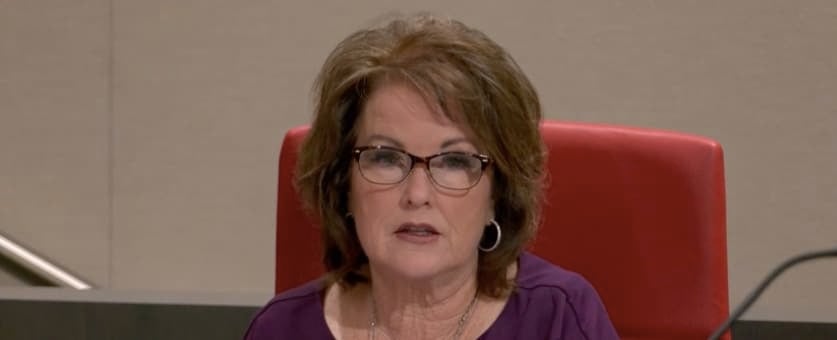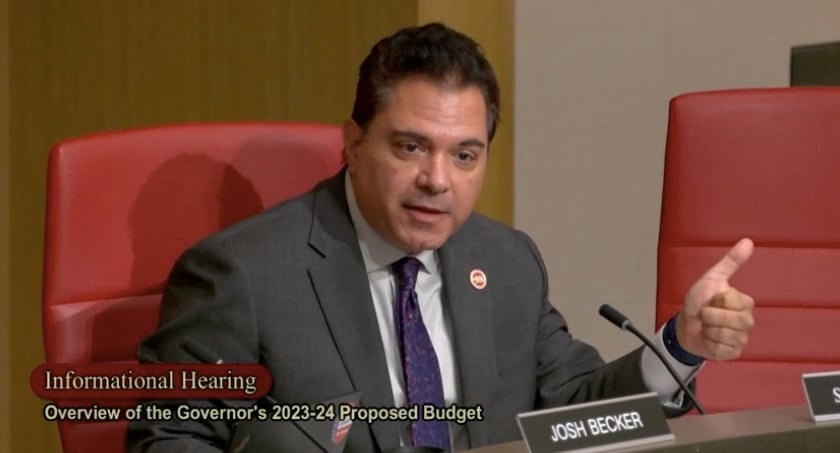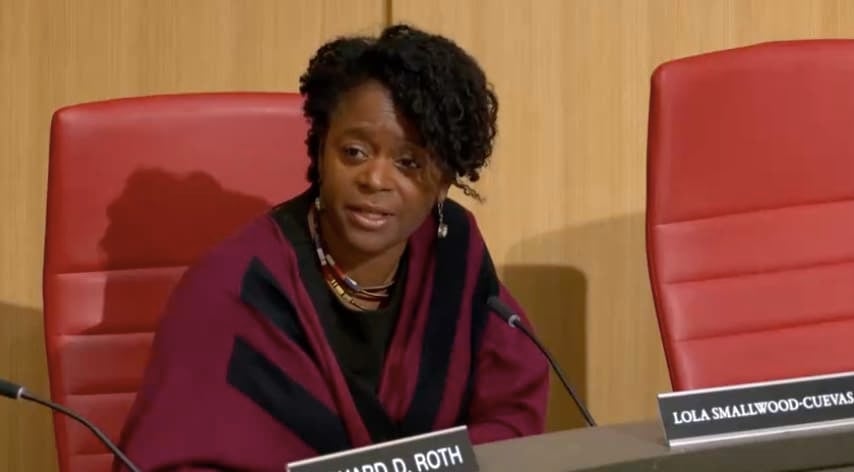SACRAMENTO, Calif. (CN) — California lawmakers began taking a close look at how deferred funding in the budget proposed by Governor Gavin Newsom will cause long-term cuts amid revenue losses.
At a hearing Wednesday moderated by state Senator Nancy Skinner, a Democrat from Berkeley, the state Senate considered the governor’s proposed $297 budget — “a launch pad for discussion.” according to the state’s chief deputy director of finance Erika Li. The proposal includes a $223.6 general fund with $35.6 billion in total budgetary reserves, given a projected $22.5 billion tax revenue shortfall.
“Have we seen any trend lines on revenue that give us a sense of what the longer term budget looks like? Do we see any tea leaves in the economy that lead us to maybe sense this is going to be a longer situation we’re facing?” asked state Senator Dave Min, a Democrat from Irvine.
Li said the state does not forecast a recession, only “very, very slow growth” after two years of surpluses.
Gabe Petek of the independent Legislative Analyst’s Office said a November report showed that stagnation will continue for several years before revenue growth resumes. Petek's office has already suggested lawmakers make additional cuts to the budget.
“A lot of this hinges on what happens with the inflation trend, which has come down a little bit. But it’s still quite high, well over the Fed's target,” Petek said. “There is an elevated risk of recession. If that really happened, the revenue we estimated could be down by another $30 to $50 billion.”
Several lawmakers pressured Newsom’s office to justify cuts to mental health care funding.
“The need here is so great,” Skinner said, noting how jails act as mental health facilities when they and staff were not designed or trained to do such tasks. All of us have realized and acknowledged this very serious need and a very large gap in our ability to meet it. Some of that gap is due to a workforce shortage.”

State Senator Shannon Grove, a Republican from Bakersfield, asked why Newsom is rolling out funding for the Care Court program, which will not begin operating until fall, while delaying funds for crisis beds. Li said that $1.3 billion for Healthcare for All is set, but some will be delayed until Jan. 1, 2024.
Grove also attacked Newsom’s spending in recent years, saying the general fund spending increased from $166 billion in 2020 to more than $200 billion in the proposed budget. She asked why Newsom is ordering counties to create legally binding plans for how they will build enough housing to create 2.5 million units by 2030.
“If the state and governor couldn't do it now he’s going to mandate it to us?” Grove said.
Li said general fund spending has increased as the state has seen large surpluses since the pandemic’s initial economic impact. She also said the state has worked with the Legislature to pass many bills to reduce barriers to affordable housing, and will provide funding and technical assistance to reduce further local barriers.
However, she said there is no additional funding for shovel-ready affordable housing projects in this budget, beyond the billions invested in prior years that are being dispersed.
State Senator Josh Newman, a Democrat from Fullerton, asked the Legislative Analyst’s Office to help address structural problems that lead to the deficit.
“This deficit is the result of the structure of California's revenue system that is highly dependent on capital gains and high net worth earners,” he said.

State Senator Steve Padilla, a San Diego Democrat, asked how the state will make new metrics to evaluate programs using state funding to address homelessness. “We’re not going to build our way into affordability, no matter what we’re told," he said.
The finance department’s Chris Cook told him new metrics will come out in February, building on existing language.
LA Democratic state Senator Maria Durazo criticized deferrals to the student housing grant program and revolving loan funds. Li said the administration is committed to making sure delays of allocated funding are spread out over several years to help minimize the effects.
State Senator Anna Caballero, a Democrat from Merced, said at least two critical hospitals in her district are closing. She said further cuts to health and workforce development funding will contribute to “a cascading impact of hospital closings.” State Senator Lola Smallwood-Cuevas of Los Angeles echoed those concerns about cuts to workforce development given half a billion in funds withdrawn or delayed, and asked to discuss it as a recession prevention tool.

Republican state Senator Kelly Seyarto of Murrieta said costly problems like the high-speed rail project and shovel-ready affordable housing projects waiting for funds demonstrate that “if you don't fix the process, we’re not going to fix the problem.”
"Our taxpayers are frustrated out there, with how their money is getting spent — and they are constantly asking, how come we spend all this money and still see all these problems?” he said.
Li said Newsom proposed a $2.2 billion reduction to transportation because the state hopes new federal packages will supplement funding. But Skinner pointed out that cuts to transportation will greatly hurt public transit. Despite low ridership numbers in the San Francisco Bay Area, many depend on the Los Angeles transit system where newly approved investments will be affected by budget cuts.
“I’m concerned about the consequences of delaying funding that cripples its future, and creates a situation with much less infrastructure in a future where we will really need that,” Skinner said.
The Legislature will spend the coming months developing its version of the state budget, which must be passed by June 15.
Subscribe to Closing Arguments
Sign up for new weekly newsletter Closing Arguments to get the latest about ongoing trials, major litigation and hot cases and rulings in courthouses around the U.S. and the world.









